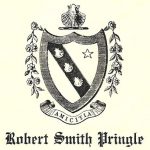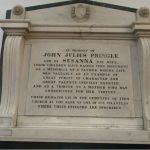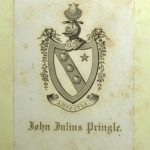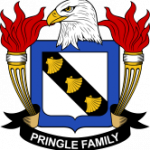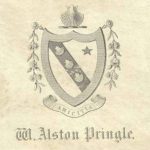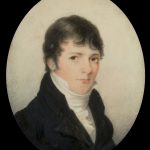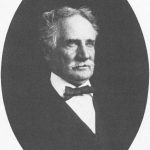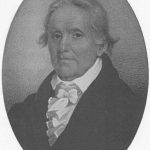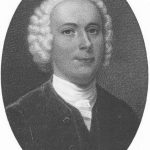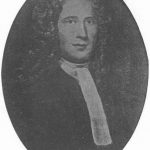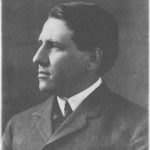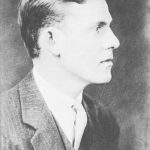Symington
The Lineage of the Pringles of Symington
- John Hoppringle of that ilk, 14th chief of the clan.
- Thomas Hoppringle (1st Laird) of Symington d. 1684. Purchased the lands of Symington and Bangrub from Lord Borthwick in 1669.
- a) Robert Pringle (2nd Laird) of Symington
- a) Thomas Pringle (3rd Laird) of Symington d. 1761
- Captain Robert Pringle (4th Laird) of Symington d. 1793
- Major-General John Pringle (5th Laird) of Symington 1774-1861
- Robert Pringle (6th Laird) of Symington W.S. 1803-1868
- Robert Pringle W.S. 1845-?
- Robert Pringle (6th Laird) of Symington W.S. 1803-1868
- Major-General John Pringle (5th Laird) of Symington 1774-1861
- Captain Robert Pringle (4th Laird) of Symington d. 1793
- b) John Pringle,
- c) William Pringle,
- d) Judge Robert Pringle of Charleston, S.C. USA. (1702-1776) – Find a Grave.
- 1) Judge John-Julius Pringle 1753-1843 – Find a Grave.
- 1) John-Julius Pringle 1784-1807
- John-Julius Izard Pringle 1808-1864 – Find a Grave.
- a) John-Julius Pringle 1842-1876 – Find a Grave.
- b) Dominic Lynch Pringle 1846-1919 – Find a Grave
- John Julius Pringle 1876-1962 – Find a Grave..
- John-Julius Izard Pringle 1808-1864 – Find a Grave.
- 2) Robert William Pringle (1786-1790),
- 3) Robert Pringle (1793-1860), – Find a Grave.
- 4) Edward Jenkins Pringle (1796-1838), – Find a Grave.
- 5) Judge William Bull Pringle (1800-1881),
- William Alson Pringle 1822-1895
- John Julius Pringle 1824-1901
- Judge Edward Jenkins Pringle of San Francisco, b. 1826 – d. 1899
- William Bull Pringle, b. 1872 – d. 1916 in San Mateo, California
- William Bull Pringle II, b. 1903 – d. 1971 in Salinas, California
- William Bull Pringle III
- William Bull Pringle II, b. 1903 – d. 1971 in Salinas, California
- William Bull Pringle, b. 1872 – d. 1916 in San Mateo, California
- 6) Charles James Pringle (1805-?).
- 1) John-Julius Pringle 1784-1807
- 2) Dr Robert Pringle. 1755-1811
- James Reid Pringle 1782-1840 – 30th Mayor of Charleston, SC. – See Picture below:
- Robert-Alexander Pringle
- Robert-Alexander Pringle
- 1) James-Maxwell Pringle 182-1905,
- had descendants.
- 2) Ernest-Henry Pringle 1849-1922,
- a) Ernest-Henry Pringle 1881-
- 1) Ernest-Henry Pringle
- 2) M’Coll Pringle.
- b) Ashmead-Forrester Pringle.
- a) Ernest-Henry Pringle 1881-
- 3) Robert-Alexander Pringle,
- 4) Walter Pringle,
- 2 sons
- 5) George Pringle.
- 3 sons.
- 1) James-Maxwell Pringle 182-1905,
- Robert-Alexander Pringle
- 1) Judge John-Julius Pringle 1753-1843 – Find a Grave.
- a) Thomas Pringle (3rd Laird) of Symington d. 1761
- b) John Pringle,
- c) William Pringle.
- a) Robert Pringle (2nd Laird) of Symington
- Thomas Hoppringle (1st Laird) of Symington d. 1684. Purchased the lands of Symington and Bangrub from Lord Borthwick in 1669.
Symington House is on the Gala Water opposite Torquhan.
Symington is a good example of a compact early 19th century Georgian country house occupying a fine setting overlooking the Galawater. It is notable for its refined massing and detailing to principal elevation. The substantial classical doorpiece and diminuitive flanking pavilions add further interest. The black whinstone masonry is brick-cut and of considerable quality. Farming at Symington dates back to at least the 17th century. There was no mansion house on the estate of Symington until the present house was built by General John Pringle. The date of 1812 is inscribed on one of the quoins to the left front of the building. The house was built on the site of an earlier steading at Symington, depicted on William Roy’s military map of 1745.
PRINGLE, John Julius, lawyer, born in Charleston, South Carolina, 22 July, 1753; died there, 17 March, 1843. His father, Robert (1702-’76), came from Scotland to South Carolina about 1730, became a merchant in Charleston, and in 1760-‘9 was a justice of the court of common pleas. The son was graduated at the College of Philadelphia in 1771, and read law with John Rutledge and in England, where his published articles in defence of colonial rights attracted attention. At the beginning, of the American Revolution he went to France, and in 1778 he became secretary to Ralph Izard, United States commissioner in Tuscany. Returning home by way of Holland and the West Indies, he was admitted to the bar in 1781, and attained high rank in his profession. In 1787-‘9 he was speaker of the state assembly, and in the latter year he served for a short time as United States district attorney, by special request of Gen. Washington. In 1800 Thomas Jefferson, then secretary of state, appointed him to report on any infractions of the treaty with Great Britain that might occur in his state, and from 1792 till 1808 he served as attorney-general of South Carolina. In 1805 President Jefferson tendered him the attorney-generalship of the United States, but family reasons induced him to decline. Mr. Pringle was for four years president of the trustees of the College of Charleston.

